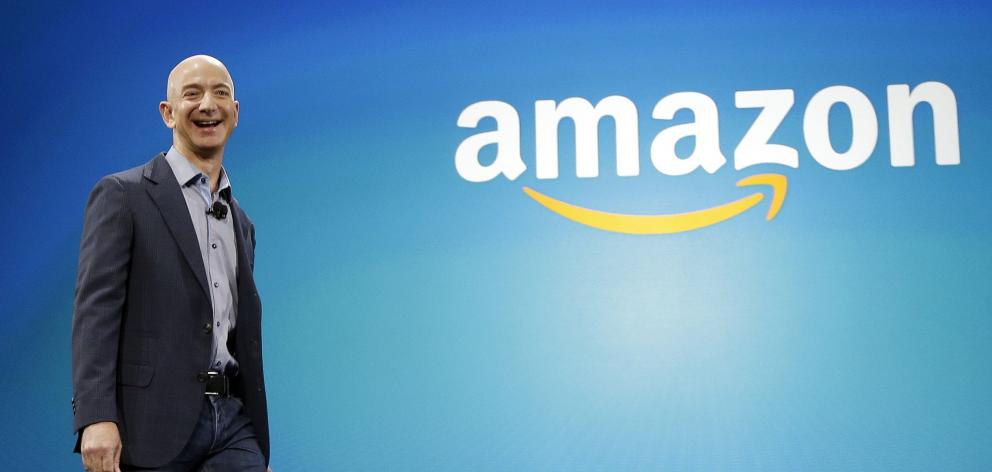

Does Amazon need the hundreds of millions of dollars in subsidies?
Definitely not, given that it posted record revenue last year, up 38% to $US386billion ($NZ535billion), with a corresponding increase in profit. Covid-19 has been good for Amazon. It is the global online retail leader, with revenue greater than our entire economy. It certainly has the clout of a trading country, but dies it bear the same scrutiny?
I followed with interest the brave positioning of the Australian Government when it took on Facebook and Google and won.
Facebook and Google are starting to strike deals around the world to pay money for news. However, these payments are more likely to line the pockets of other behemoth companies, like News Corp, rather than minnow regional papers — a win for some, not for others.

For Amazon, unlike Facebook and Google, advertising represents only a small portion of its turnover.
As companies, from start-ups to large retailers, clamour to make use of the Amazon platform, and utilise its incredible distribution network, it’s easy to see how with each click from a consumer, each product distributed, each payment for search engine optimisation, the giant morphs into the Goliath.
What is truly mind-blowing is that Amazon has the power to shape everything, from commerce to technology, including the future of work. That kind of power does not come without a few skeletons.
Amazon has cancelled contracts with many unionised US delivery firms as it moves to create its own delivery network with sub-contracted (non-employee) “last-mile logistics workers.” Many of the contracted Amazon drivers have had enough of the efficiency drive and excessive performance monitoring (enhanced via artificial intelligence) and are speaking out. Add to that the company’s poor warehouse health and safety record and a slew of criticism over its labour practices and the acid is starting to come on.
Amazon founder, Jeff Bezos, has stepped down as CEO of Amazon (he will become the executive chairman) and in his final letter to shareholders, he laid out a vision for the company committing to extend its famous obsession over its customers to the same level of care for its employees.
Its vision now extends to being the “Earth’s Best Employer and the Earth’s Safest Place to Work” on top of being the “Earth’s Most Customer-Centric Company”.
It’s hard not to view this cynically — perhaps this quote, taken from an Amazon employee (interviewed in the book, The everything store: Jeff Bezos and the age of Amazon) says it all. “If you're not good, Jeff will chew you up and spit you out. And if you’re good, he will jump on your back and ride you into the ground.”
As the New Zealand Government signs a deal with Amazon to support our film industry, it is worth reflecting that there is a lot to be admired in Amazon’s relentless pursuit of innovation and efficiency.
This means for so many people, including me, they are a platform of convenience and choice. But as we become entangled with these mega-companies, we do need to question and challenge its ethics where we can, as we do with any trading partner at a country level.
Australia has shown that questions can be asked and stances can be made. And speaking of questions asked, I can’t help but wonder what could be done if we held out more of that red carpet to our local businesses and start-ups in a form more useful than the paltry, bureaucratic R&D tax incentive?
In this context, hundreds of millions in tax incentives for Amazon does feel a little on the nose.
- Anna Campbell is the Co-Founder of Zestt Wellness, a nutraceutical company and a Partner of AbacusBio Ltd, an agri-technology company.
Comments
You thought Water World was bad. Amazon have already spent a billion dollars to bend Tolkien's universe, and have nothing to show for it. Belly flop highly likely. Check out the 1977 cartoon Tolkien movie. Aragon wore a dress. Yet, Numenor's legacy is stronger than ever. Amazon has been spending money on rockets for 20 years, yet has never reached space. Money does not beget wisdom.
Good Lord. Aragon both Amazin' and Amazon. We saw the animated Tolkien at the Lido, Wellington. Not too good.












